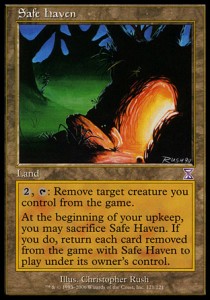Are you a Quiet Speculation member?
If not, now is a perfect time to join up! Our powerful tools, breaking-news analysis, and exclusive Discord channel will make sure you stay up to date and ahead of the curve.
We all put a lot of time and money into our collections. As a person who has had a collection stolen, I know how it feels when something suddenly disappears, especially something that takes years to acquire and money out of your pocket to replace.For some of us it's a yearbook of memories of years past, for others its a transient inventory.
How important is your collection to you? What would you even do if your collection was stolen? As I once learned the hard way, you simply need to insure your collection.
I’m intimately familiar with Insurance laws in the State of California, but things may differ in your region. This is meant to be a guide to the types of questions to ask and the types of coverages you need.
Your belongings can be insured a number of ways. The most common are through a Homeowners/Renters policy and the other is a Personal Articles Rider. I’ll talk a little about both, and let you know what to look for when insuring your collection.

Homeowners Insurance
If you’re a homeowner, you likely already carry Homeowners Insurance. Homeowners Insurance protects more than your home, it also protects all of your belongings, including your Magic Cards, without having to add other coverages!
Be careful and talk to your company to be sure that there are not limitations on certain types of collectables. Many companies have limitations on Sporting Cards but not other collectibles, so investigate this closely.
Other companies may have a limit on how much they’ll pay for any individual collectible item that is stolen. Also, your stuff doesn’t have to be stolen from your home to be covered, it covers you around the world wherever you take your stuff. Ask your company if there are any exceptions to this, especially regarding theft from your vehicle.
Homeowners Insurance pricing will vary specifically to your area and the size of your home. Talk to a professional to be sure you have adequate coverage. Also keep in mind most Homeowners Policies have a decently high deductible, so make sure that’s something you’re comfortable with, for if something happens to your collection, they will only pay for the portion that exceeds your deductible.
Renters Insurance
Renters Insurance is very similar to Homeowners Insurance, it simply does not provide coverage for the dwelling where you live. It does cover, however, your belongings in a similar way.
Typically Renters policies have better coverage for your belongings because it is the primary chunk of coverage. Renters insurance starts around $12/month and, depending on the amount of coverage you want, can be up to $40 or $50 per month.
You’ll be asked to select the amount of coverage for all of your belongings on a Renters policy. It is important you do this and not simply the amount of Magic Cards you want to cover.
For example: If you obtain a Renters policy with $10,000 in coverage, and your home is broken into and your collection is stolen, your carrier will ask why you are claiming $10,000 is stolen, but all your other belongings are still there. They will then say you were underinsured and decrease the amount of your claim.
Personal Articles Rider
A personal Articles Rider is an add-on to a Renters or Homeowners policy that provides coverage for items that are excluded or limited from the main policy. If your carrier doesn’t include coverage for your collection on the basic policy, ask them if they have a Rider available (sometimes called a Floater).
With a Rider you get to specifically state the value of your collection and choose a specific deductible for those items only. This really is the best option, but is typically much more expensive than the coverages built into a package Homeowners or Renters Policy.
Valuation
There are 3 ways Insurance Companies will value your collection, the first being Actual Cash Value.
This term may sound great, but this is probably not what you want. An item’s Actual Cash Value is its price when new less any depreciation. In the eyes of a non-collector, a 10 year old piece of cardboard is worth next to nothing, and if something happens to it, that’s what they’ll offer you.
Another valuation option is Replacement Cost Value. This means the carrier will pay you the cost (Including Shipping and Tax) to actually replace the loss with like-quality items. This is what you’re looking for if you want to actually recoup your loss. For this method, there is typically no requirement to track or log what items you own in the case of a loss, but any documentation or proof you can show will be helpful.
I suggest taking a video camera and walking through your entire house (and also scanning over your collection) and saving the tape in a secure location away from your home (preferably at your insurance agent’s office). In the case of a loss, they will do some research and find out what it would cost them to replace it and make you an offer.If you accept they cut you a check, or you have the option to prove to them it would cost you even more to replace.
The third option is Agreed Value, which is what’s typically seen on a Personal Articles Rider. Upon entering the contract, you and the insurance company agree on the exact value of all the items covered, and you must provide a list, or other proof, of what items you are covering. This guarantees that you will receive the value you expect from any loss.
Wrap-up
The key to protecting your collection is asking a lot of questions. Know what’s covered and know what isn’t. Ask specifically about how thefts away from the home (at a Magic Event, for example) are handled in the claims process and how they value collectibles.This is one way you will see the difference between the discount companies and the major carriers.
Remember, if it only costs you a fraction more to be with a carrier that actually protects the items that are important to you, its likely a good idea to switch.
I’m happy to answer any questions about insurance in the comments below!
Guard your stuff!





Thanks for this perfectly timed article. I have only been collecting for about a year, and was starting to worry about this as I have seen my collection explode in both size and value.
This is really useful information that many people know nothing about until it's too late. Great to see this brought up.
This is awesome, Chad, thanks. 🙂